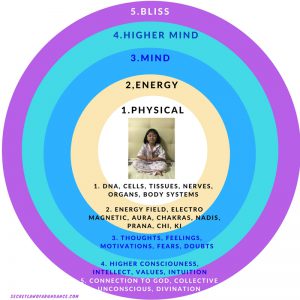Alternative healing, also known as complementary or holistic medicine, encompasses a diverse range of therapies, practices, and approaches that fall outside the realm of conventional Western medicine.
Many people turn to alternative healing methods for various reasons, including seeking relief from chronic illnesses, managing stress, or enhancing overall well-being.
While it’s important to note that the effectiveness of these methods can vary and not all alternative healing practices are supported by scientific evidence, many individuals report experiencing positive outcomes. Here are some potential benefits associated with alternative healing:
1. Holistic Approach:
Alternative healing often takes a holistic approach, addressing the mind, body, and spirit. Practitioners consider the individual as a whole, focusing not only on symptoms but also on underlying causes and contributing factors to the person’s health issues.
2. Personalized Care:
Alternative healing methods often involve individualized treatment plans. Practitioners may spend more time with patients, understanding their unique needs and tailoring treatments accordingly.
3. Natural and Non-Invasive:
Many alternative therapies, such as herbal medicine, acupuncture, and chiropractic care, use natural remedies and non-invasive techniques. This appeals to individuals who prefer treatments with minimal side effects and a focus on the body’s natural healing abilities.
4. Emphasis on Prevention:
Alternative healing often emphasizes preventive measures, encouraging lifestyle changes, stress management, and healthy dietary practices to prevent illnesses and promote overall well-being.
5. Enhanced Quality of Life:
People undergoing alternative healing therapies sometimes report an improved quality of life. This can include reduced pain, better sleep, improved mental health, and increased energy levels.
6. Integration with Conventional Medicine:
Many individuals use alternative healing methods in conjunction with conventional medical treatments. This integrative approach can provide a more comprehensive and supportive healthcare experience.
7. Mind-Body Connection:
Practices such as yoga, meditation, and mindfulness focus on the mind-body connection. They can help individuals manage stress, anxiety, and depression, leading to better mental and emotional well-being.
8. Cultural and Personal Beliefs:
Alternative healing often respects cultural and personal beliefs about health and wellness. It can offer diverse options for individuals who prefer treatments aligned with their cultural or spiritual practices.
9. Patient Empowerment:
Alternative healing methods often involve active participation from patients. Individuals may learn self-help techniques, dietary changes, or exercises that empower them to take control of their health and well-being.
10. Reduced Side Effects:
Many alternative healing methods, particularly herbal medicine and dietary supplements, have fewer adverse effects compared to some pharmaceutical medications, making them a preferred choice for certain conditions.
It’s crucial for individuals considering alternative healing methods to consult qualified practitioners, especially those who have received proper training.
